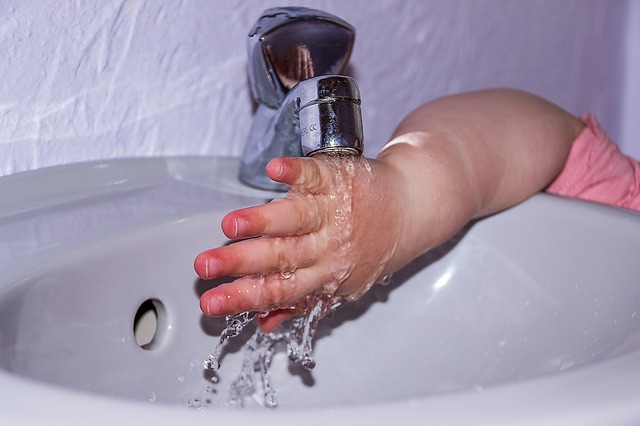World’s top hygiene experts, in partnership with Dettol, identify key factors in the home and school that cause spread of bacteria.
In Singapore, cases of diarrhoea have been rising sharply this year. On a global scale, there are about two billion cases of diarrhoea disease every year. It is the second leading cause of death in children under five years old and kills 1.5 million children every year. Simultaneously, infectious diseases like the Hand, Foot and Mouth Disease and seasonal colds and flu continue their stronghold all over Singapore.
In efforts to eliminate infectious diseases and improve hygiene habits, the Global Hygiene Council, together with Dettol, the expert in hygiene, conducted two main studies this year – the Cross-contamination Study and the Back to School Study. The studies aimed to understand hygiene behaviour and identify knowledge gaps around the spread of bacteria.
“Infectious diseases carry not only health costs but also socio-economic costs like absenteeism from school and lost workdays for adults. As such, Dettol is firmly committed to building a germ-free community, which is why we’ve worked with the Global Hygiene Council, which is led by the world’s top hygiene experts, to assess hygiene practices across the world to identify lapses and provide recommendations for a healthier environment,” said Nikilesh Kalra, Marketing Director, Reckitt Benckiser (Singapore & Malaysia).
THE CROSS-CONTAMINATION STUDY
The Cross-contamination Study assessed the ease at which cross-contamination occurs during the preparation of a variety of food preparation and storage in a typical family kitchen.
High exposure to bacteria even in home-cooked meals
Surprisingly, findings showed that people are highly exposed to the threat of foodborne illnesses, even while enjoying home-cooked meals in the comfort of their homes. Findings also suggested that people pay minimal attention to disinfection during food preparation, causing an easy transfer of bacteria from raw food to secondary surfaces such as ready-to-eat food, and various surfaces in the kitchen.

Inadequate handwashing key to contamination in the kitchen
In addition, people’s awareness of vegetables and salad as a source of bacterial contamination is low as they generally do not wash their hands after handling these items or use separate chopping boards and knives for these items and ready-to-eat foods. In addition, they also do not wash all salad items. Most of the contamination in the kitchen are caused by inadequate handwashing and sanitising with anti-bacterial products. Kitchen towels are also a main source of cross-contamination.
⇒ Related Read: Proper Hand Washing Steps
Spread of bacteria in the home
If poor hygiene is practised, 87 per cent of secondary surfaces will be covered with bacteria. This indicates that ready-to-eat food including apples, grapes, carrots and salads, can pose as infection threats to family members. These bacteria can then potentially spread to other parts of the house through hand contact. Up to 90 per cent of hand-contact surfaces, like radios and water bottles are contaminated and furthermore, these items are unlikely to be cleaned regularly, thus providing the perfect breeding ground for bacteria. In addition, in 86 per cent of occasions, taps were contaminated, so clean hands are re-contaminated after washing. Half of the people studied also washed raw chicken and food in the sink, potentially contaminating the sink.
As hands are one of the major causes of cross-contamination, the Global Hygiene Council and Dettol recommend that proper handwashing with antibacterial soap at key times during food preparation is essential to preventing foodborne illnesses. Surface cleaning and targeted disinfection are also of paramount importance to break the chain of infection.
THE BACK TO SCHOOL STUDY
The Back to School study is based on responses from 14,000 mothers of primary school children in 14 countries and identifies the motivational factors for mothers to impart the routine of good hygiene practices to their children.
High contamination levels in eating areas, not restrooms
It was found that mothers believe that the restroom contains the most bacteria in school but a swabbing test showed otherwise. In contrast, surfaces in eating areas are commonly contaminated, which means that school children, teachers and staff are highly exposed to the risk of picking up bacteria while eating through hand contact or eating equipment like cutlery and lunch boxes.
Mothers play important role in enforcing good hygiene practices
Across the globe, 21 percent of mothers are primarily concerned that their children will pick up the Hand, Foot and Mouth Disease (HFMD) while foodborne illnesses come in second at 19 percent and the seasonal flu at 10 percent. 89 per cent of mothers will impart good hygiene habits, such as hand washing and coughing into a tissue. On the frequency of handwashing, 64 per cent will ensure their child washes their hands upon their return from school while 71 per cent of mothers said their child is made to wash their hands with soap after going to the toilet, using the bathroom or using the restroom. More than half of the mothers surveyed said their child is made to wash their hands before lunch (67 per cent), after lunch (55 per cent) and after playing outside (53 per cent).
“It is critical that we devote extra attention to our children’s health and inspire them to adopt good hygiene habits. A review by the Global Hygiene Council suggests that exposure to infectious disease in childhood could have future implications for brain growth and development,” said Prof. John Oxford, Chairman of Global Hygiene Council. The review shows that in the first five years of life are crucial for a child’s overall growth. The brain of a newborn requires 87 per cent of the body’s energy for development. In five-year-olds the brain consumes about almost half of the body’s energy. Any competition with this energy is detrimental to the brain’s ability to develop to its full capacity.
“Dettol firmly believes in instilling good hygiene practices in the young because of the correlation between a healthy body and a healthy mind. Furthermore, these good habits formed in their younger days stay with them for life. We urge parents, teachers and caregivers to be especially conscientious in practising and imparting good hand hygiene habits as it remains the most effective first line of defense to curb the transmission of infectious diseases, whether young or old,” added Nikilesh.
In Singapore, Dettol continues its efforts in promoting good hygiene practices in the community through initiatives like the Health Promotion Board’s Hand Hygiene Programme. The public education programme will reach out to over 200 primary schools over three years from 2012 to 2015 to educate children on the importance of hand hygiene.
Press Release by Dettol. You can get Dettol products over at Shopee.
* * * * *
Like what you see here? Get parenting tips and stories straight to your inbox! Join our mailing list here.
Want to be heard 👂 and seen 👀 by over 100,000 parents in Singapore? We can help! Leave your contact here and we’ll be in touch.















































Leave a Comment: